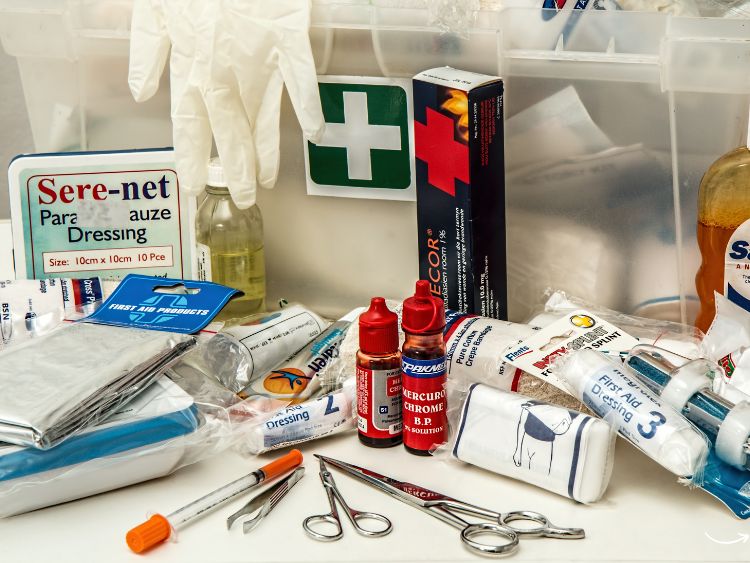So, you’ve decided to dive into the fast-paced world of emergency medicine? That’s fantastic! Emergency medicine residency programs are the gateways to mastering the art of quick thinking, precise action, and compassionate care. But with so many options out there, how do you choose the right program? This article will guide you through the ins and outs of emergency medicine residency programs, helping you make an informed decision.
What Are Emergency Medicine Residency Programs?
Emergency medicine residency programs are specialized training pathways designed for medical graduates who want to become experts in emergency care. These programs typically last three to four years and provide hands-on experience in various emergency settings, from trauma centers to community hospitals. You’ll learn how to diagnose and treat patients in critical conditions, manage medical crises, and work as part of a multidisciplinary team.
Why Choose Emergency Medicine?
Emergency medicine isn’t just a career; it’s a calling. If you’re the type who thrives under pressure, enjoys a fast-paced environment, and loves the idea of making a difference in people’s lives during their most vulnerable moments, then this field is for you. Plus, the demand for skilled emergency physicians is always high, offering job security and opportunities for advancement.
Key Components of an Emergency Medicine Residency Program
- Clinical Rotations
- Trauma Centers: Where you’ll handle the most severe cases, from car accidents to gunshot wounds.
- Pediatric Emergency: Focus on treating younger patients with unique medical needs.
- Toxicology: Learn to manage poisoning and overdose cases.
- Critical Care: Hone your skills in intensive care units, managing life-threatening conditions.
- Didactic Training
- Lectures and Seminars: Weekly sessions on the latest advancements in emergency medicine.
- Simulation Labs: Practice real-life scenarios in a controlled environment to build confidence and skills.
- Journal Clubs: Engage in discussions about recent research papers, staying updated on emerging trends.
- Research Opportunities
- Many programs encourage or even require residents to engage in research projects, contributing to the field’s knowledge base.
- Mentorship and Networking
- You’ll be paired with seasoned emergency physicians who guide your career, offer advice, and help you navigate the challenges of residency.
Top Emergency Medicine Residency Programs
When it comes to choosing a residency program, reputation matters. Here are some of the top-ranked emergency medicine residency programs in the United States:
- Harvard Affiliated Emergency Medicine Residency (HAEMR)
- Located in Boston, this program is known for its rigorous training, diverse patient population, and access to cutting-edge research.
- University of California, San Francisco (UCSF)
- UCSF offers a comprehensive program that emphasizes both clinical excellence and academic research, with a focus on underserved communities.
- Johns Hopkins University
- Renowned for its innovation in medical education, Johns Hopkins provides a balanced approach to clinical training and research opportunities.
- University of Pennsylvania
- This program offers a unique blend of urban and community emergency medicine experiences, preparing residents for any setting.
- Mayo Clinic
- Mayo Clinic’s residency program is known for its patient-centered approach, integrating the latest technology and research into clinical practice.
How to Choose the Right Program for You
Selecting the right residency program is crucial for your career. Here are some factors to consider:
- Location: Do you prefer an urban or rural setting? Consider the patient demographics and types of cases you’ll encounter.
- Program Size: Larger programs may offer more diverse experiences, while smaller ones might provide a more personalized training environment.
- Curriculum: Look at the balance between clinical rotations, didactics, and research opportunities.
- Work-Life Balance: Residency is demanding, but some programs place a stronger emphasis on wellness and work-life balance.
Application Process
The road to securing a spot in an emergency medicine residency program is competitive but manageable with the right approach.
- Preparation
- Start early with strong letters of recommendation, a compelling personal statement, and a well-rounded CV.
- ERAS Application
- The Electronic Residency Application Service (ERAS) is your portal for submitting applications. Be meticulous in filling out all sections.
- Interviews
- Be prepared to answer questions about your experiences, why you chose emergency medicine, and what you bring to the program.
- The Match
- The National Resident Matching Program (NRMP) is where you’ll rank your preferred programs. This process is crucial, so rank wisely!
FAQs About Emergency Medicine Residency Programs
- What is the typical duration of an emergency medicine residency program?
- Most programs last three to four years, depending on the institution and specific training requirements.
- Can I pursue a fellowship after completing my residency?
- Absolutely! Many residents go on to specialize in areas like pediatric emergency medicine, toxicology, or critical care.
- What should I expect in terms of work hours during residency?
- Expect long hours, including night shifts and weekends. However, work-life balance is increasingly emphasized in many programs.
- How important is research during residency?
- While not mandatory in all programs, engaging in research can enhance your training experience and open doors for future opportunities.
- What qualities are residency programs looking for in applicants?
- Programs seek candidates with strong clinical skills, the ability to work under pressure, excellent communication abilities, and a passion for emergency medicine.
Conclusion
Embarking on an emergency medicine residency program is a challenging yet rewarding journey. With the right program, you’ll gain the skills, knowledge, and experience needed to excel in this dynamic field. Remember to choose a program that aligns with your career goals, lifestyle preferences, and personal values. The right fit will not only make your residency more enjoyable but will also set the foundation for a successful career in emergency medicine.
Authoritative Links:
- https://www.acgme.org/Specialties/Overview/pfcatid/5/Emergency-Medicine
- https://www.saem.org/about-saem/academies-interest-groups-affiliates2/saem-residents-and-medical-students
- https://www.acep.org/
- https://emedicine.medscape.com/emergency_medicine
- https://www.aamc.org/cim/explore-options/specialty-profiles/emergency-medicine
This guide is designed to help you navigate the complex world of emergency medicine residency programs, making sure you’re well-prepared for the exciting challenges ahead.






